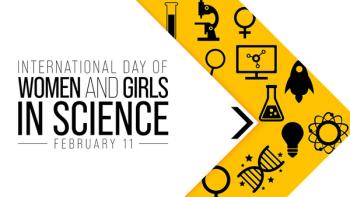
- Pharmaceutical Technology-12-02-2016
- Volume 40
- Issue 12
Industry’s role in helping to create standards
Susanne Keitel, director of the European Directorate for the Quality of Medicines and Healthcare (EDQM), discusses the role industry plays in the development of pharmaceutical standards.
Pharmaceutical Technology Europe spoke with Susanne Keitel, director of the European Directorate for the Quality of Medicines and Healthcare (EDQM), about the role industry plays in the European Pharmacopoeia’s (Ph. Eur.) development of pharmaceutical standards.
PTE: What is EDQM’s role in fostering drug development? How can pharma companies participate in that role?
Keitel: The EDQM is, amongst other activities, in charge of the Ph. Eur., a compendium of quality standards for medicines and their components legally binding in its member states and the European Union. In addition, it is applied in over 100 countries worldwide. The standards of the Ph. Eur. are the benchmark for pharma companies when developing their products; they provide them with clear information on the requirements. Likewise, the Ph. Eur. provides regulatory authorities with the standards against which to assess, harmonizing requirements throughout the 37 member states and the numerous other countries that apply the Ph.Eur.
Pharma companies are more than welcome to actively contribute to the development of these standards, be it by participating in their drafting and testing, or by commenting on drafts during public consultation.
PTE: How can pharma companies work with EDQM to help develop standards and monographs?
Keitel: The Ph. Eur. relies on the contributions from the currently more than 700 experts nominated by member states and observers. In addition, the Ph. Eur. Commission has recently decided to open the nomination process to experts from around the world. Expert members of the more than 70 Groups of Experts and Working Parties draft pharmacopoeial texts and are involved in the experimental verification and validation of the methods described.
PTE: How can EDQM help companies prepare for submissions to regulatory authorities in Europe, be it the EMA or one of the national competent authorities?
Keitel: The Ph. Eur. is legally binding in Europe; compliance with its requirements is a pre-requisite for product approval. The EDQM offers training, workshops, and webinars related to the Ph. Eur., which may help industry to ensure they have a clear understanding of the requirements. In addition, the EDQM is in charge of the Certification of Suitability to the monographs of the European Pharmacopoeia (CEP) procedure, which is a centralized assessment of the API part of a marketing authorization application for chemically-defined substances or herbals covered by a Ph. Eur. monograph. In this context, the EDQM offers technical advice to CEP applicants.
PTE: What role does EDQM play in the global harmonization of pharmaceutical regulations and standards?
Keitel: The Ph. Eur., as such, is a perfect example of successful harmonization throughout a continent. In addition, the EDQM and its Ph. Eur., together with the Japanese and US pharmacopoeias, established the Pharmacopoeial Discussion Group (PDG) in 1989 to harmonize pharmacopoeial texts. The EDQM has actively participated in a number of different Expert Working Groups developing International Council for Harmonization (ICH) guidelines (e.g., ICH Q3A, Q3C, Q3D, Q7, Q11). In 2016, the EDQM became an observer to the ICH. Furthermore, the EDQM is an observer to the Pharmaceutical Inspection Convention and Pharmaceutical Inspection Co-operation Scheme (PIC/S) and the International Generic Drug Regulators Programme (IGDRP). In addition, the EDQM has a number of bilateral Memorandums of Understanding and Confidentiality Agreements with countries from all continents.
Articles in this issue
about 9 years ago
Options in Employee Trainingabout 9 years ago
Biosimilars Supporting Contract Manufacturers’ Growthabout 9 years ago
Airlocks for cGMP Facilitiesabout 9 years ago
Evaluating Mixing in a Single-Use Bioprocessing Systemabout 9 years ago
Shrink Banders for Labeling Applicationsabout 9 years ago
Chromatograph Enables Fast Recovery of Target Compoundsabout 9 years ago
Automated Microscope for Multimodal Imagingabout 9 years ago
From Bitter to Sweet: Developing a User-Friendly Painkillerabout 9 years ago
Nurturing the Relationship Between Industry and Regulatorsabout 9 years ago
Getting involved with pharma standardsNewsletter
Get the essential updates shaping the future of pharma manufacturing and compliance—subscribe today to Pharmaceutical Technology and never miss a breakthrough.




